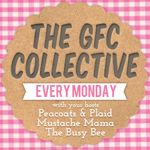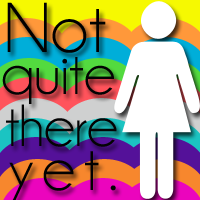I am always hesitant to come out and talk about this honestly. I know how confident I (we) are about not having children right now, but I worry about what people would say if one day we ended up having a child. "Look who is having a baby after all that 'childfree' talk." "I thought they hated kids." "What happened to all that no baby talk?"
I mentioned in a previous post about how frustrating it was to constantly be asked/told "When are you having a child?" "Why are you not pregnant?" or the best "It's just a phase..." Being constantly misunderstood and feeling unheard by people is incredibly disheartening. If you have seen any of the articles for the Time magazine then you know the big topic is about being childfree. What bothers me is that people that are choosing not to have children are getting clustered into stereotypes that don’t reflect my (our) position. The childless by choice are cast as selfish, narcissistic, unfulfilled, incapable of knowing real love, etc.
Just like not all parents are the same and not all children are the same, neither are the people who are choosing not to have children. I have read a lot of articles written by people that are choosing to be childfree and this article titled Parenthood Optional seems to explain how J and I feel. Her reasons have nothing to do with being too irresponsible to care for a child, or about needing fancy cars/trips/etc. She simply does not want them.
One difference is that she never wanted children, where up until a short while ago, I craved children. I thought that in order to have a complete life I would have to get married and have 2.5 children with a picket fence and a dog. When I realized that this was not a requirement for fulfillment or happiness, the stress melted. I grew up being told what a wonderful mother I would be. Giving, helpful, self sacrificing- all that jazz, so I thought surely I am put here to be a mother. But I have realized that is not the case and that I don’t want children.
This is where the frustration and the feeling of being misunderstood set in. When it comes down to it, folks that have children and/or desire children don’t understand what its like to not desire children. In the same sense that we don’t understand what it is like to be a parent. Maybe, it would be best to acknowledge there is a disconnect and leave it at that. However, that is not what usually happens as shown by the many responses to Time’s article
I have already mentioned some of the responses, previously. Some responses/reasons for having children are as silly as the reasons for not having children. Having a child so that you have someone to take care of you when you get older is as selfish as not having one so you can travel. (But I would point out that only one of those ensnares an innocent party into your selfishness.)
There is the “fear” response, that I will regret this when I get older and then it will be too late. Maybe. That is impossible to know and impossible to refute. We all have regrets. We can only make decisions on the information we have at hand and I can’t justify bringing another being into this world on the basis of assuaging a potential regret 20 years down the road.
But the upsetting responses come from the Christian community.
“Parenthood (more often Motherhood) is our highest calling” (Another version – “Children are the greatest gift God can give” Anytime I’ve heard or read this it has come from a parent. I appreciate their enthusiasm but I don’t think they understand the implications of that statement. (At least I hope they don’t) What is implied is that my call to be childless and in the mental health field is of lesser value – it is a “lesser” call. This is also a backhanded way of calling someone selfish. Unless there is a way to reject God’s “highest calling” without putting yourself before God.
Then there are articles such as The Problem with the Childfree Life, from The Gospel Coalition. It states “the most basic problem is that the childfree life does not take God into account.” As I mentioned at the beginning, we realize that God might change our hearts and give us a desire for children. But if he doesn’t and we don’t then we have ignored God? This is a thought process, I fear, that much of the church holds. (The Gospel Coalition was founded by Tim Keller, a prominent pastor in the Presbyterian Church of America which is our denomination.) Whether intended or not, that thought process effectively marginalizes those of us that choose not to have children.
I do want to help, make a difference, encourage, and nurture, but I have realized that I don't have to have children to do those things. I am a mental health therapist at a residential facility that works with children from ages 5 to 21 every day. Every day is a call and a chance to help, encourage and nurture. I get to go to work and fight for these kids who, often times, don't have families to fight for them. And those that do have families are often so damaged from other traumas that they need extra help. I would argue that not having children allows me to fully give myself to this calling and to “my kids”.
Working in this field has taught me a few things 1. Having children does not mean you are a good parent and 2. There are a lot of children out there with parents and families that still need non-family in their lives to give them encouragement and strength.
In the LA Times article, she makes a point to say that people who chose a childfree life are not bound to put in community service to better everyone else's children. I completely agree. This is simply where I am coming from. The decision to not have children is a personal one and that decision can be as selfish or unselfish or as holy or unholy as the decision to have children.
*Justin and I shard the experience of writing this post together*








I love reading your posts! Hope things are great in the Carolinas for y'all :)
ReplyDeleteJenny